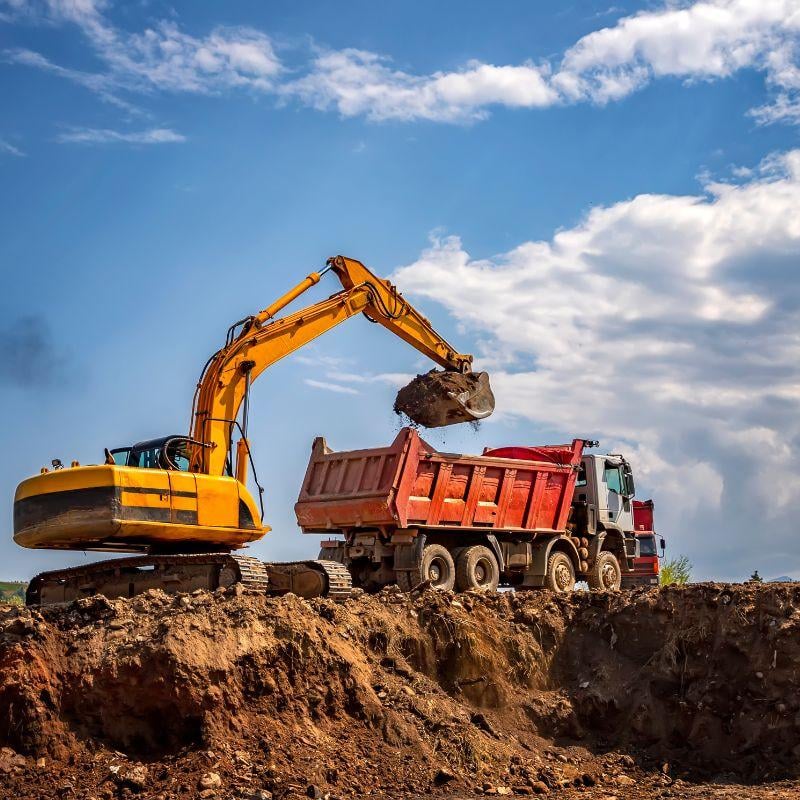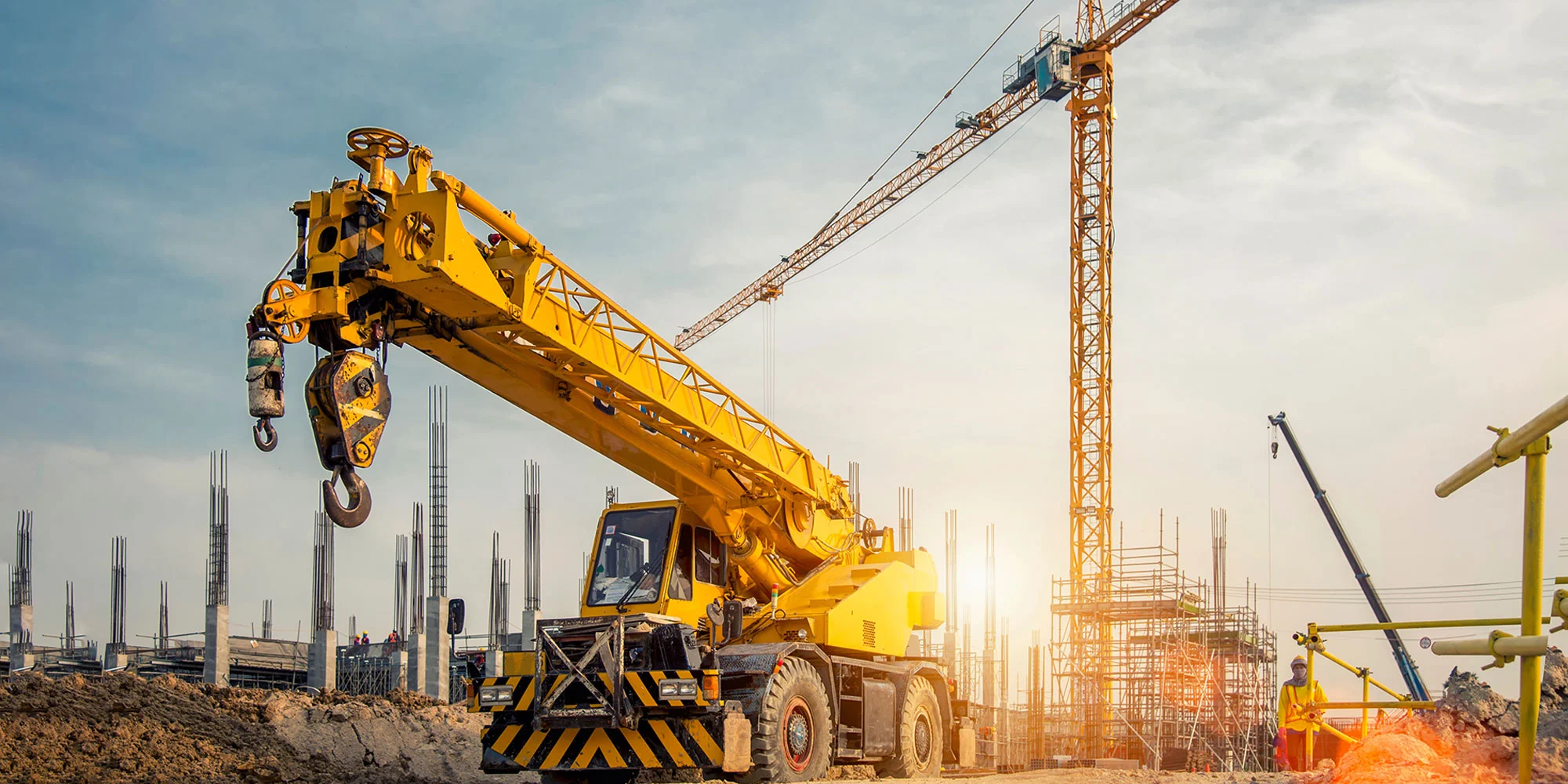Heavy Equipment Rental in Tuscaloosa AL: Find the Right Tools for Any Kind Of Task
Heavy Equipment Rental in Tuscaloosa AL: Find the Right Tools for Any Kind Of Task
Blog Article
Discovering the Financial Benefits of Renting Construction Devices Contrasted to Possessing It Long-Term
The decision between leasing and possessing building and construction equipment is critical for monetary administration in the sector. Renting out offers immediate expense financial savings and operational flexibility, enabling business to designate sources extra efficiently. On the other hand, possession features substantial lasting economic dedications, consisting of maintenance and depreciation. As specialists evaluate these alternatives, the effect on capital, job timelines, and modern technology access becomes increasingly significant. Understanding these nuances is necessary, specifically when taking into consideration just how they straighten with details task demands and economic methods. What aspects should be focused on to make sure ideal decision-making in this complicated landscape?

Cost Comparison: Renting Out Vs. Having
When examining the monetary ramifications of renting versus owning building equipment, a thorough price contrast is important for making informed choices. The option between renting out and having can substantially impact a firm's profits, and understanding the connected costs is crucial.
Renting building and construction equipment usually entails reduced ahead of time expenses, enabling organizations to allocate funding to various other functional demands. Rental costs can accumulate over time, possibly going beyond the expenditure of possession if equipment is needed for a prolonged period.
Alternatively, possessing construction equipment needs a considerable preliminary financial investment, in addition to recurring costs such as depreciation, insurance, and financing. While possession can lead to long-lasting cost savings, it likewise connects up funding and may not provide the same degree of adaptability as leasing. In addition, having devices requires a commitment to its utilization, which may not constantly straighten with job needs.
Eventually, the decision to rent or own ought to be based on an extensive analysis of specific task requirements, monetary capacity, and long-term critical objectives.

Upkeep Duties and expenditures
The choice between having and leasing building and construction tools not just entails economic factors to consider yet likewise includes continuous maintenance expenses and responsibilities. Owning equipment needs a considerable commitment to its upkeep, that includes routine evaluations, repair services, and prospective upgrades. These responsibilities can quickly accumulate, bring about unanticipated prices that can stress a budget plan.
In comparison, when leasing equipment, maintenance is generally the responsibility of the rental company. This setup enables specialists to avoid the economic problem connected with wear and tear, as well as the logistical obstacles of organizing repair services. Rental contracts typically consist of arrangements for maintenance, suggesting that service providers can focus on completing tasks as opposed to worrying concerning devices condition.
In addition, the diverse range of tools readily available for lease allows business to choose the latest versions with innovative innovation, which can enhance efficiency and productivity - scissor lift rental in Tuscaloosa Al. By going with leasings, businesses can avoid the lasting responsibility of devices depreciation and the linked maintenance headaches. Eventually, assessing upkeep costs and responsibilities is critical for making an educated choice regarding whether to possess or lease construction tools, substantially impacting overall job costs and operational performance

Depreciation Effect On Possession

A substantial factor to think about in the decision to have building and construction tools is the impact of depreciation on general ownership expenses. Devaluation stands for the decrease in worth of the equipment gradually, affected by variables such as use, wear and tear, and developments in innovation. As construction heavy equipment rental devices ages, its market worth reduces, which can dramatically affect the owner's financial position when it comes time to offer or trade the devices.
For building companies, this depreciation can convert to considerable losses if the devices is not used to its fullest possibility or if it lapses. Owners must make up depreciation in their financial estimates, which can cause higher total expenses compared to renting out. Furthermore, the tax effects of devaluation can be complex; while it may provide some tax obligation advantages, these are commonly countered by the fact of lowered resale worth.
Inevitably, the problem of devaluation highlights the significance of understanding the lasting monetary commitment associated with owning construction equipment. Companies must carefully review just how usually they will certainly utilize the equipment and the prospective financial impact of devaluation to make an educated decision road grading equipment concerning ownership versus leasing.
Financial Flexibility of Renting
Leasing building equipment provides considerable monetary adaptability, permitting companies to allocate sources a lot more effectively. This versatility is particularly essential in a sector defined by fluctuating project needs and varying work. By deciding to rent, organizations can prevent the significant capital expense required for purchasing devices, maintaining cash money flow for other functional needs.
In addition, renting devices makes it possible for companies to customize their tools choices to certain task requirements without the long-lasting dedication related to possession. This means that organizations can quickly scale their equipment stock up or down based upon existing and anticipated task demands. As a result, this adaptability lowers the risk of over-investment in equipment that may end up being underutilized or out-of-date in time.
One more economic advantage of renting out is the capacity for tax obligation benefits. Rental repayments are usually taken into consideration operating costs, permitting immediate tax deductions, unlike depreciation on owned and operated tools, which is spread over several years. scissor lift rental in Tuscaloosa Al. This instant cost recognition can further improve a company's cash setting
Long-Term Task Factors To Consider
When examining the lasting requirements of a construction business, the decision between having and leasing devices becomes a lot more complex. Key aspects to consider consist of job duration, regularity of usage, and the nature of upcoming jobs. For jobs with prolonged timelines, acquiring tools may appear beneficial due to the potential for lower general prices. Nevertheless, if the equipment will certainly not be used consistently across look here projects, possessing may bring about underutilization and unnecessary expense on maintenance, insurance coverage, and storage space.
Furthermore, technical developments present a significant consideration. The building and construction industry is developing swiftly, with new equipment offering improved efficiency and security functions. Renting enables firms to access the most recent innovation without devoting to the high upfront costs connected with purchasing. This versatility is especially valuable for businesses that deal with diverse jobs needing various sorts of tools.
Moreover, financial stability plays a vital role. Possessing tools usually involves considerable funding investment and depreciation problems, while renting out enables more predictable budgeting and capital. Ultimately, the option between renting out and having needs to be lined up with the tactical objectives of the building and construction organization, taking into consideration both expected and current task demands.
Conclusion
In final thought, leasing building devices uses significant economic benefits over long-term ownership. Ultimately, the decision to lease rather than own aligns with the dynamic nature of building jobs, enabling for flexibility and accessibility to the latest equipment without the financial concerns connected with ownership.
As devices ages, its market value decreases, which can substantially influence the proprietor's economic placement when it comes time to trade the tools or market.
Leasing building and construction devices offers significant monetary versatility, allowing business to designate sources extra efficiently.Additionally, renting tools allows business to tailor their equipment selections to certain task demands without the long-lasting commitment associated with possession.In verdict, leasing building and construction equipment provides significant monetary benefits over long-lasting ownership. Eventually, the decision to lease rather than very own aligns with the vibrant nature of construction jobs, allowing for flexibility and accessibility to the most recent equipment without the monetary problems associated with possession.
Report this page